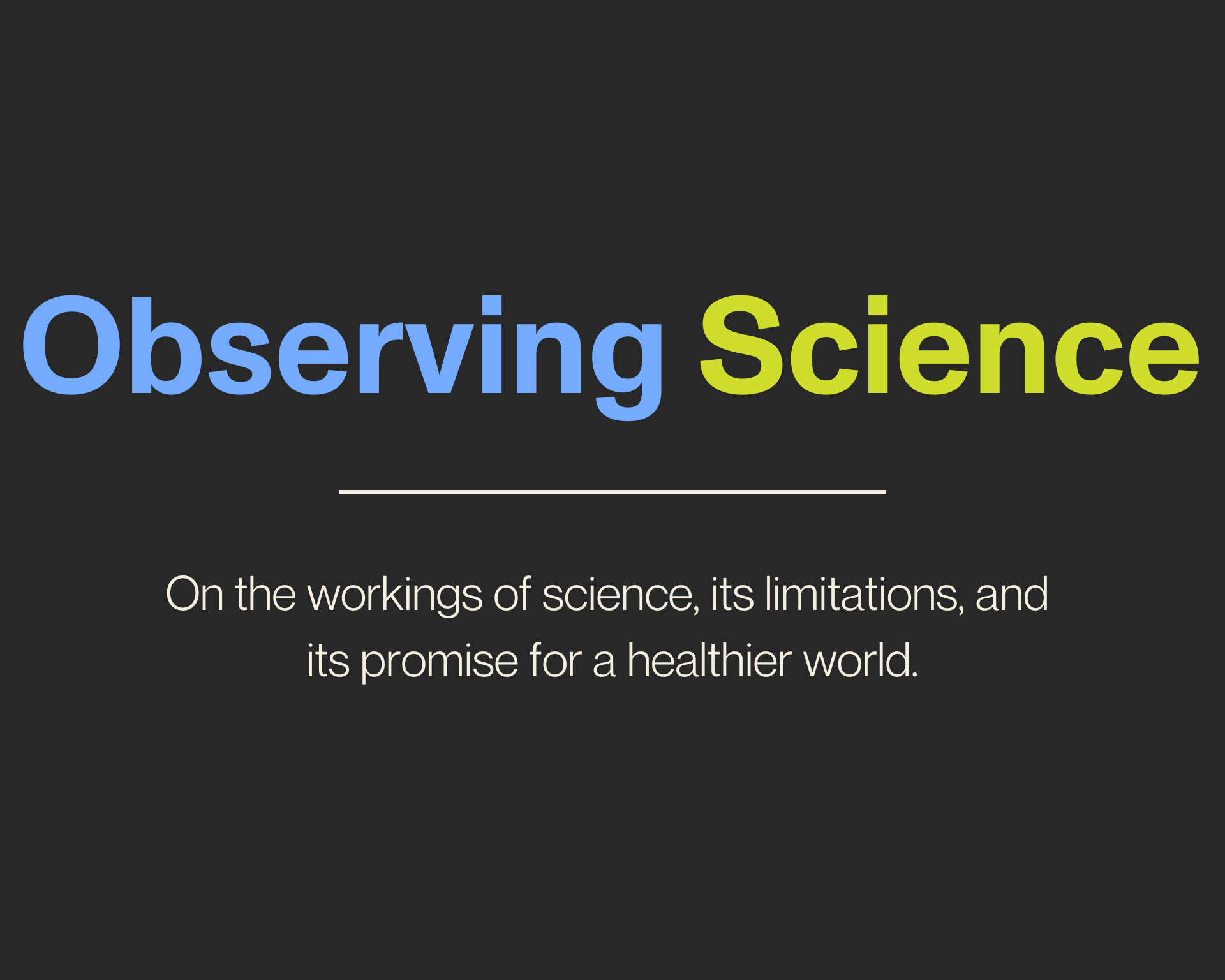Ways of Knowing
On self-reflection and science as a particular way of knowing.

Read Time: 5 minutes
Published:
We have been writing about science. And yet, sometimes, it seems worth asking ourselves again, what is science. There are any number of definitions, and countless books, but broadly, a simple Oxford Languages definition captures the idea well: science is “the systematic study of the structure and behavior of the physical and natural world through observation, experimentation, and the testing of theories against the evidence obtained.”
There seems little question that science has played a central role in helping advance our condition as a human species. Science leads directly to vaccination, the reduction of childhood illness, to genetic engineering and CRISPR-based treatment of disease. Science has facilitated automation, creating more time for recreation and self-actualization. And yet, of course, science has contributed to its fair share of challenges. Science has led to nuclear weapons, the atrocities associated with their use in Hiroshima and Nagasaki, and the near constant threat of human extinction. Science has led to polluting technologies and accompanying global climate warming, with its attendant consequences for human living. It is with this in mind—the good and the bad—that we, in some ways, set out to write about science in this Observing Science series.
Much has been written about the problems with science, and we tackle some of these issues in this series. Over the past two centuries, a number of these problems have been particularly wrong-headed, think of the era of phrenology or theories of miasma. And these problems have led to frustrations with science, some (perhaps many of them) well-warranted. In turn, this has led to challenges that get at the epistemological heart of the enterprise—asking what the foundations of science are, or should be.
While these challenges come from many places, a common thread is the idea that the mindsets and practice of science emerge from historical oppression of different modes of thinking, and that the edifice of science rests on colonial and racist approaches to the world. This has led to thinking about how we know what we know, how we do science, and why science is what it is, to the consideration of different ways of knowing that extend the approaches science has taken historically, to the inclusion of qualitative data with our quantitative approaches. This seems to us an excellent development and we consider all efforts to think carefully about the work of science to be important pushing the field forward, to interrogate what we do to the end of doing it better.
There is, however, a risk, as with all efforts of reflection and re-imagination, that this re-examination leads us to throw away the science baby with the re-examination bath water, so to speak. Recent efforts to reconsider, for example, indigenous ways of knowing, have blurred the line with systematic efforts to collect data and generate inference (i.e., science) with oral tradition and spirituality. Integrating indigenous knowledge of which local areas are at risk from wildfires and flooding, for example, based on generationally passed-down familiarity with place is indeed a kind of understanding and prediction about the world we live in, and at times has great ecological value. But not all knowing is science.
There is a second definition relevant to our understanding of science—alternately attributed to Immanuel Kant, Herbert Spencer, and Will Durant—that we think relevant here: “Science is organized knowledge. Wisdom is organized life.” There is much wisdom in historical approaches to the world steeped in tradition and understanding accumulated over centuries. Fiction and poetry teach us much about the human condition. Both can contribute to wisdom. But again, we suggest that blurring the contributions that non-scientific approaches and science itself can make runs the risk of diminishing both the place of science and of the contribution that alternative approaches can make to our understanding of the world.
Though science is heterogenous, inclusive of a wide range of disciplines and theories, it has certain features that make it a particular kind of knowing. One of those features is its success in supplying explanations, how or why something happens. The particular methods scientists use to investigate the world and its explanation are distinctive—and, importantly, change over time—although not all science is experimental. Science is systematic, and the building blocks of science are theory- or law-based, and that bedrock must remain at the heart of the science enterprise, even as we bring different perspectives and tools to the field.
We recognize that the emergence of some of these re-definitions of science come as a reaction to a historical suppression of the harms wrought by science. We believe it is important to continue to self-reflect—as we are trying to do in part with Observing Science—but to do so from a place of pride, and clear-eyed understanding at what science has achieved, and can achieve as a method of inquiry, even with its biases and limitations, and to keep a clear eye on its distinction as a particular way of knowing.
Previously in Observing Science: The Real Reward




